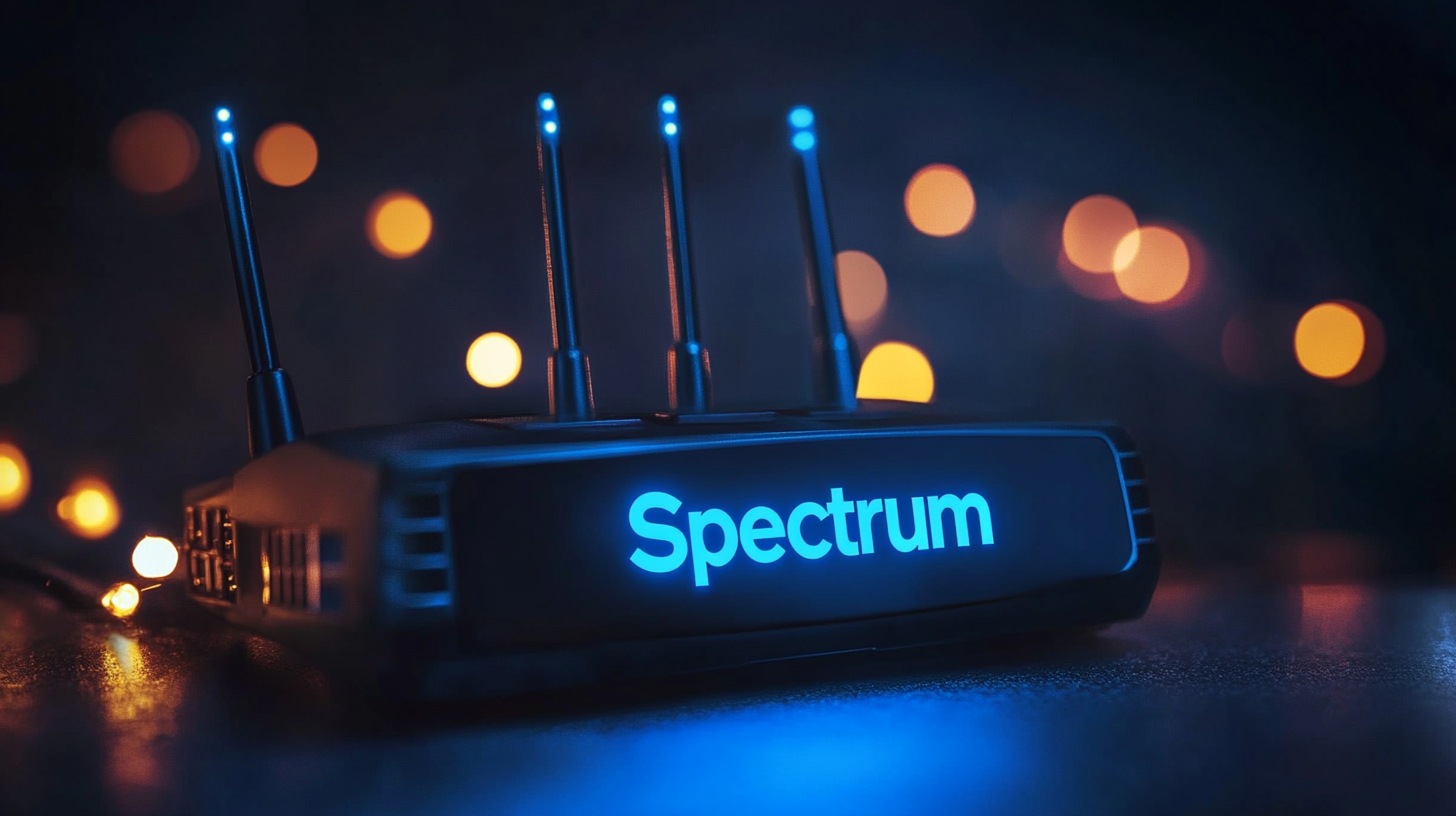The Best Home Internet Provider
Wed Jan 15 2020
|netservicesIf you are looking to change home internet providers, look no further! This list comes up with the best providers for your budget. There are dozens of ways to find an internet service that works for your needs

If you are looking to change home internet providers, look no further! This list comes up with the best providers for your budget. There are dozens of ways to find an internet service that works for your needs. Whether you want higher speeds, better customer service, or faster download speeds, you have tons of options to get the fastest internet for your money!
Who’s the best home internet provider?
To answer this question, you will want to assess your internet needs. First, what kind of internet do you currently have? Wireless internet? Fiber-optic network? Cable? Satellite? Wi-fi router? Modem? What is (or is not) good about your current internet service? Make a “wish list” of what your internet should do (faster download, anti-virus protection, faster speeds, etc.).
Second, what do you want your internet service to do? Many people want faster streaming and upload speeds for their usage at home. Perhaps you want to watch your favorite shows on cable TV without that silly “buffering” icon. Maybe you have just started a small business from home and want to upgrade to unlimited data. Or, maybe you just want a faster download speed/upload speed for videos from your son’s 5th birthday.
With these two questions in mind, look at your internet options and find a service that fits your needs. Keep in mind that service providers often bundle, letting you cover several services at once.
Some internet service providers may include data caps, which slow your internet speeds after reaching your limit for that month. This will result in losing Mbps (megabits per second, which is how internet plans measure high speed). The quality of these internet service providers will vary in each state, and may not even exist in some places. Here are some providers that deliver the fastest internet for your home budget. Check them out!
(Note: internet speed will vary depending on your region, not just the internet service you choose. No single service has a monopoly on high-speed internet!)
AT&T
Lots of sources point to AT&T as the best overall service provider. With massive service areas and a brand name worth its weight in gold, AT&T is trusted by homes and businesses everywhere to provide high speeds. So, what internet options does AT&T provide? Their website lists several internet options that start at a low fixed rate of $40. (Many home internet providers will offer low prices for the first year, then increase them later. In AT&T’s case, these increased prices appear to match the relative internet usage of each client). These options include escalating benefits as you go up. Internet across multiple devices and download speeds from 5 Mbps to 1,000 Mbps match your payments. AT&T also bundles with a DirectTV package for video streaming, so you may consider adding that to your purchase.
Verizon
This service provider is another trusted brand that often bundles phone and internet plans. Like AT&T, Verizon delivers dozens of options and is well-trusted with its coverage. Its prices are about the same, and while it has fewer plans, it mostly offers the same services. Also, anyone who signs up for a Verizon plan gets 1 year of Disney+ for free! That’s a $72 value that might not be around forever.
Xfinity
Xfinity may offer one of the best deals for streaming videos. Its video download speeds can reach 2000 Mbps—twice what its competitors offer! You may find other providers with better overall coverage, but Xfinity internet is a rock-solid candidate for video streaming. It’s a spectacular TV service that still keeps your speed up.
Estimate how much video content your family streams on average, and divide the total hours by Xfinity’s local costs. Is the price worth it? How much would you pay for each hour of watching a video? If you buy Xfinity’s high-speed internet, make sure you will use it to your money’s worth—and that it will fulfill your other home internet needs.
Viasat
Viasat offers bundles on multiple platforms, allowing for customization across whatever internet services you wish. The contract researched here was for 24 months, so keep that in mind when you sign up. This offer was a satellite service with up to 50 Mbps, which is about average for internet providers. On top of all that, Viasat includes free installation for their standard service.
HughesNet
HughesNet satellite internet sounds like it was programmed by your neighbor’s son who lives in his mother’s basement. But whatever that kid does, it works.
HughesNet offers packages that are a little pricier but include data plans and pretty good wi-fi service. It’s a satellite internet provider that also offers a “Bonus Zone,” which provides an extra 50 GB of data between 2 AM and 8 AM. Whenever your family watches their favorite shows, it’s probably not while they’re sleeping. Still, if you ever find yourself burning the midnight oil on a project, HughesNet gives you the Mbps to keep up with the fastest internet out there.
Google Fiber
Google Fiber is a fiber-optic internet provider that provides high-speed internet for some of the biggest cities and suburbs in North America. Google Fiber stands out from other internet service providers. It is fast, reliable, and works well for its users. It’s favored among college students, assuming they can purchase it. With so many people in an apartment complex, and with everyone coming home and working simultaneously, it is a wonder that Google Fiber does as well as it does.
Its most significant disadvantage is its coverage. It works in the areas where it has been installed, but it is not available everywhere yet. Because it is a fiber optic cable internet (hence the name), installation requires massive pipelines to fit those cables. But if you have it, and if it is in your price range, Google Fiber is a great provider.
Frontier Communications
Frontier Communications offers cheap fiber optic internet to 29 states. While it seems well-managed and offers “mobile app features,” the search results for it become…worrying. Apparently, Frontier Communications (which we had never heard of before starting) is selling its assets. Several results mentioned bankruptcy or financial hard times, so be careful with this one.
Also, its customer service arm seems a little starved. There are additional fees that they expect people to shell out on top of the monthly fee. Not to mention the complaints about slow or unhelpful customer service, which can be a deal-breaker all by themselves. Watch out for Frontier Communications. But service providers can vary a lot by region, so maybe the chapter in your state is not so bad.
Spectrum
When we searched a random zip code in New York, a provider showed up on our results. They appeared in an article published earlier, “Business Internet Providers in 2020.” But here’s the rundown: Spectrum, like everything in New York, is expensive but reliable. Their contract lasts for 12 months, which is about average for service providers. While their installation requires fees and their speed is about 100 Mbps, they are a good choice for many small businesses.
That being said, it is an expensive alternative. If you have done your research, you will know what service providers are like in your area.
Can I get wi-fi without a home internet provider?
Technically you can, but most methods are impractical and only work for a single device. If you work with your laptop at a free wi-fi hotspot, for example, you can avoid paying for the internet every month.
But you may only get the speeds you are paying for–which will not be very good, compared to professional internet service. But for a family internet service in a home, it’s not practical to take a family road trip to the local McDonald’s every time you want to use the internet. It is also possible to buy a mobile hotspot device, which wirelessly links multiple devices to the internet. It’s usually best to let the professionals handle your internet.
Who has the cheapest internet?
Obviously, “cheap internet” does not always mean “the absolute best money can buy.” But here’s the breakdown in terms of relative pricing. Find which service provider works best for your income and stick with that. If you need to downgrade, do not be afraid to drop a few features that you are not using. Many internet packages include phone or voice services. Are you using those? Do you need those services?
While cheap internet may not have everything, it probably has what you need. If you have done your research, you will know exactly which service matches your home needs. Ask your service provider what they offer, and whether you can avoid paying for things you don’t use. Cut back on certain programs. Try bundling with either a phone service or a texting service. Only pay for what you need and you’ll save money.
Speed Test
Here is a fun test you can try right now. Search for your current speed in Mbps. There are several services that provide speed checking. This works for any type of internet service, be it fiber-optic internet, satellite internet, or whatever else you have. If your speed is above 40 Mbps, your internet is doing pretty good for an average home.
A densely packed apartment might expect slower speeds in the evening when everyone’s home. Whatever your internet speeds may be, they should match your needs. You will not need the fastest internet service or the fastest download speed out there if you are already meeting your needs.
But if you are looking at each service provider individually, the cheapest high-speed internet service for homes is probably either AT&T or Verizon. But for your family, you will want something that covers almost everywhere and is a trusted brand.
These companies may not be as cheap as some options, but they bundle with other streaming services and are generally the most reliable. This is your internet, after all—it ought to be reliable! (Xfinity is also a good plan for families who consume tons of shows and would not mind paying a little extra).



